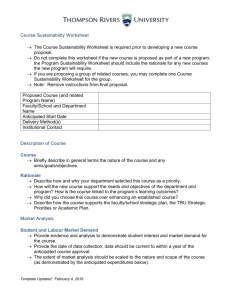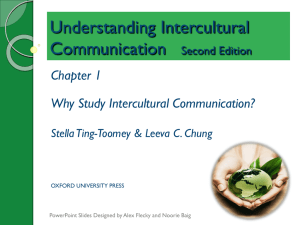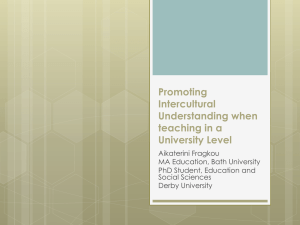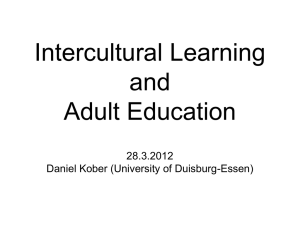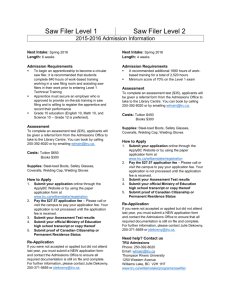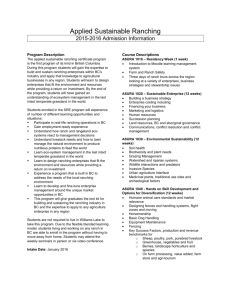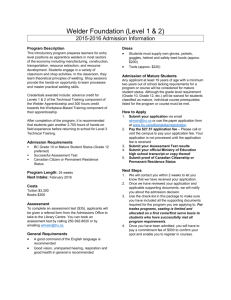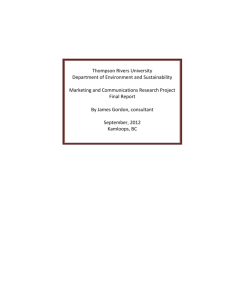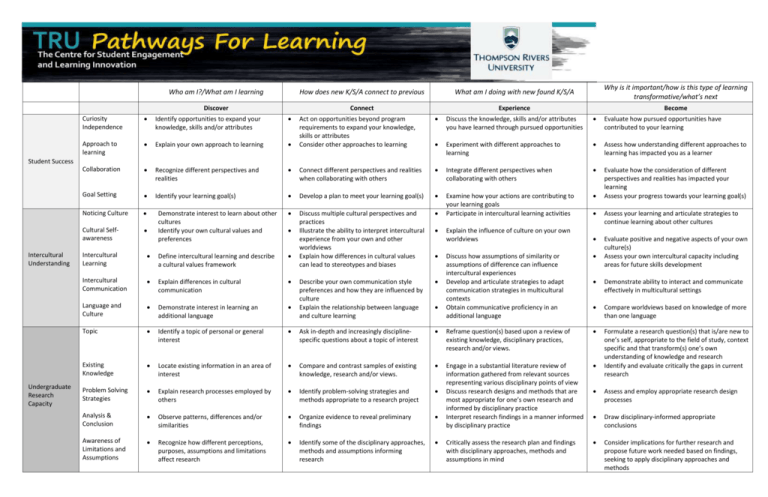
Who am I?/What am I learning
How does new K/S/A connect to previous
What am I doing with new found K/S/A
Why is it important/how is this type of learning
transformative/what’s next
Discover
Connect
Experience
Become
Curiosity
Independence
Identify opportunities to expand your
knowledge, skills and/or attributes
Act on opportunities beyond program
requirements to expand your knowledge,
skills or attributes
Consider other approaches to learning
Discuss the knowledge, skills and/or attributes
you have learned through pursued opportunities
Evaluate how pursued opportunities have
contributed to your learning
Approach to
learning
Explain your own approach to learning
Experiment with different approaches to
learning
Assess how understanding different approaches to
learning has impacted you as a learner
Collaboration
Recognize different perspectives and
realities
Connect different perspectives and realities
when collaborating with others
Integrate different perspectives when
collaborating with others
Develop a plan to meet your learning goal(s)
Demonstrate interest to learn about other
cultures
Identify your own cultural values and
preferences
Discuss multiple cultural perspectives and
practices
Illustrate the ability to interpret intercultural
experience from your own and other
worldviews
Explain how differences in cultural values
can lead to stereotypes and biases
Examine how your actions are contributing to
your learning goals
Participate in intercultural learning activities
Evaluate how the consideration of different
perspectives and realities has impacted your
learning
Assess your progress towards your learning goal(s)
Goal Setting
Identify your learning goal(s)
Noticing Culture
Cultural Selfawareness
Describe your own communication style
preferences and how they are influenced by
culture
Explain the relationship between language
and culture learning
Student Success
Intercultural
Understanding
Undergraduate
Research
Capacity
Intercultural
Learning
Define intercultural learning and describe
a cultural values framework
Intercultural
Communication
Explain differences in cultural
communication
Language and
Culture
Demonstrate interest in learning an
additional language
Topic
Identify a topic of personal or general
interest
Ask in-depth and increasingly disciplinespecific questions about a topic of interest
Existing
Knowledge
Locate existing information in an area of
interest
Problem Solving
Strategies
Explain research processes employed by
others
Analysis &
Conclusion
Awareness of
Limitations and
Assumptions
Explain the influence of culture on your own
worldviews
Assess your learning and articulate strategies to
continue learning about other cultures
Evaluate positive and negative aspects of your own
culture(s)
Assess your own intercultural capacity including
areas for future skills development
Discuss how assumptions of similarity or
assumptions of difference can influence
intercultural experiences
Develop and articulate strategies to adapt
communication strategies in multicultural
contexts
Obtain communicative proficiency in an
additional language
Compare and contrast samples of existing
knowledge, research and/or views.
Identify problem-solving strategies and
methods appropriate to a research project
Observe patterns, differences and/or
similarities
Organize evidence to reveal preliminary
findings
Recognize how different perceptions,
purposes, assumptions and limitations
affect research
Identify some of the disciplinary approaches,
methods and assumptions informing
research
Demonstrate ability to interact and communicate
effectively in multicultural settings
Compare worldviews based on knowledge of more
than one language
Reframe question(s) based upon a review of
existing knowledge, disciplinary practices,
research and/or views.
Engage in a substantial literature review of
information gathered from relevant sources
representing various disciplinary points of view
Discuss research designs and methods that are
most appropriate for one’s own research and
informed by disciplinary practice
Interpret research findings in a manner informed
by disciplinary practice
Formulate a research question(s) that is/are new to
one’s self, appropriate to the field of study, context
specific and that transform(s) one’s own
understanding of knowledge and research
Identify and evaluate critically the gaps in current
research
Critically assess the research plan and findings
with disciplinary approaches, methods and
assumptions in mind
Assess and employ appropriate research design
processes
Draw disciplinary-informed appropriate
conclusions
Consider implications for further research and
propose future work needed based on findings,
seeking to apply disciplinary approaches and
methods
Entrepreneurial
Capacity
Taking Risks
Identify risk(s) of taking new action
Develop a plan to mitigate harmful risks
Test for effect of risk
Assess results of risky actions/behaviors
Problem Solving
Identify obstacles to success
Observe one’s own environment to
uncover new opportunities
Select and/or design strategies to overcome
obstacles
Reframe innovative thinking in context of
realistic application
Innovative
Thinking
Outline alternative approaches to solving a
problem
Outline innovative approaches to new or
existing prospects
Justify and recommend solutions to local, national
and/or international challenges
Evaluate the outcome of one’s own innovative
thinking
Connection &
Synthesizing?
Recognize existing connections among
ideas or solutions
Connect ideas or solutions in a new way
Use knowledge, ideas or technologies to create
new or significantly improved products, services,
processes or policies
Assess new enterprise and effectiveness of
development process
Social
responsibility
Identify personal values within the context
of a larger society
Give examples of personal choices and habits
that affect sustainability
Act in a socially responsible way locally,
regionally, nationally and globally
Evaluate how personal choices affect the
environment
Define & Connect
Define sustainability
Identify how concepts of sustainability are
connected to issues of social justice, the
environment and the economy
Discuss a sustainability issue from a social,
economic and environmental perspectives
Explain how one’s own gained awareness has
changed or shifted perspectives regarding
sustainability
Taking action
Express/Show concern for global,
environmental and/or social issues
Choose to contribute directly toward solving
one or more sustainability challenges
Extend sustainable practices to achieve positive
social, economic and environmental outcomes
Measure the impact of your actions and assess
whether this action can be sustained over time to
continually make a positive impact
Sustainability
The Pathways for Learning Program and all affiliated documents, images, and text have been developed by Staff and Faculty Members of Thompson Rivers University Centre for Student Engagement and Learning Innovation. As per the Thompson Rivers
University Copyright Policy #ADM 03-0:
“In accordance with copyright law provisions, all materials produced by TRU staff to attain the objectives of TRU, or produced with TRU resources, are the property of TRU and are marked ‘All Rights Reserved, Thompson Rivers University’.
If a staff member produces a personal project involving significant use of TRU time or materials, TRU funds, or TRU technical or secretarial assistance, the staff member must meet with the President to reach a written agreement about the
ownership of the copyright or patent and the cost allocations of the project. If a written agreement is not reached, the copyright or patent will be vested in TRU.”
Please see the Thompson Rivers University Copyright Policy #ADM 03-0 to review the regulations regarding the use of the content(s) in this document.
All Rights Reserved, Thompson Rivers University. 2015


